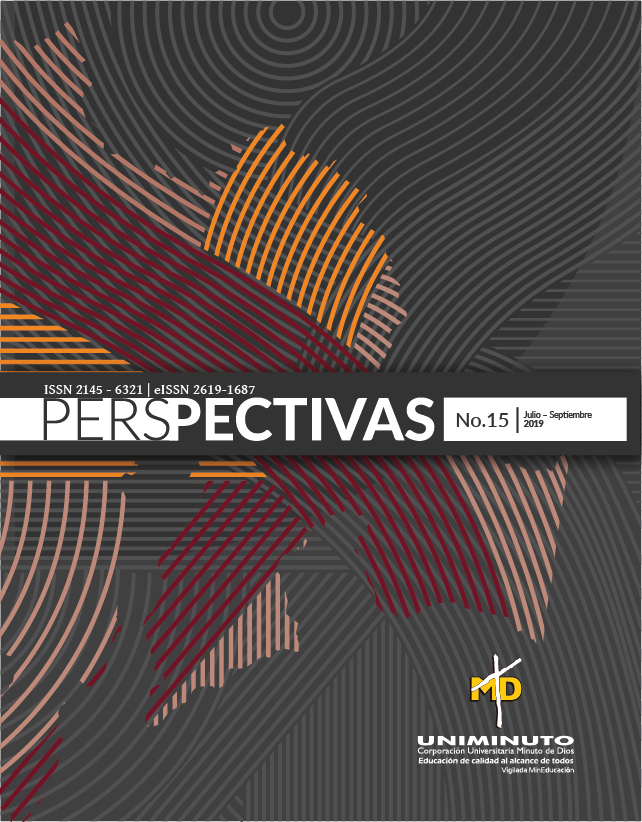Investigando y contribuyendo conocimiento libre para la educación
Barra lateral del artículo
Cómo citar
Detalles del artículo
Contenido principal del artículo
Resumen
El presente artículo tiene como finalidad presentar la investigación denominada “software libre para educación”, que tiene como objetivo promover e implementar el uso de software de código abierto en la educación y/o instituciones educativas. Ya que, con el nacimiento de las Tic, se vio la necesidad de crear herramientas informáticas para poder utilizarlos eficientemente. En los años 60’s, eran las empresas programadoras de código cerrado (software privativo) quienes ofrecían las opciones en el mundo de lo informático; fue entonces cuando nació el código abierto, también conocido como software libre. Tras un proyecto de proyección social de la universidad Minuto de Dios en un Centro educativo de la cuidad de Girardot, Se observó la necesidad y la oportunidad de la implementación de un software libre de carácter administrativo para la institución. Así que se planteó la respectiva idea con unos prerrequisitos que debía cumplir el software inicialmente. Se investigaron, postularon, relacionaron y probaron diferentes software en esta categoría, para posteriormente identificar los más viables para dicho propósito. En la categoría de software libre educativo se encontraron diferentes herramientas útiles en diversos ámbitos, pero debido a la necesidad especifica actual de la institución educativa, el software seleccionado fue el Asistente para Bibliotecas Escolares (Abies 2.0), siendo este un asistente bibliotecario, que ofrece múltiples servicios y ayudas en la gestión administrativa de dicho lugar, especialmente a las de básica primaria y secundaria. Los resultados esperados al llevar a cabo la implementación del producto de esta investigación, es el mejoramiento de la gestión y procesos que realiza el software anteriormente nombrado, ya que se mejora el rendimiento y la eficacia de la gestión bibliotecaria académica en sus diferentes aspectos. Además que ayudar reducir el costo destinado para la adquisición, licenciamiento, mantenimiento, entre otros. De un similar de tipo licenciado, dinero el cual, el centro educativo puede usar para otros fines prácticos; además de la ventaja que el código se puede modificar según su conveniencia y propósito.
Referencias
Foundation, F. S. (18 de 11 de 2016). Free Software Foundation. Recuperado el 01 de 02 de 2018, de Free Software Foundation: https://www.gnu.org/education/education.es.html
GREYCY. (2016). Proquest. Recuperado el 01 de 03 de 2018, de Proquest: https://search.proquest.com/openview/3d0dcefc3628de4c87be3efafa486b55/1?pq-origsite%20=gscholar&cbl=54848
HispaLinux. (s.f.). HispaLinux. Recuperado el 02 de 03 de 2016, de HispaLinux: http://hispalinux.es/softwarelibre
Library, P. (2015). Koha. Recuperado el 01 de 02 de 2018, de Koha: https://www.projectlibrary.com.co/que-es-koha
Ministerio de Educación Chileno. (s.f.). Bibliotecas Escolares CRA. Recuperado el 01 de 03 de 2018, de Bibliotecas Escolares CRA: http://www.bibliotecas-cra.cl/abies2
Yépez, W. L. (6 de 12 de 2004). Razones para Usar Software Libre en las Universidades. Recuperado el 01 de 01 de 2018, de Razones para Usar Software Libre en las Universidades: http://gluc.unicauca.edu.co/index.php/Razones_para_Usar_Software_Libre_en_las_Universidades
ZKTECO Latinoamerica. (s.f.). ZKTECO Latinoamerica. Recuperado el 01 de 02 de 2018, de ZKTECO Latinoamerica: https://zktecolatinoamerica.com/educacion
PortalProgramas. (2016). Ranking de universidades en software libre (RuSL), 1–2. Retrieved from http://www.portalprogramas.com/software-libre/ranking-universidades/
González Barahona, J., Seoane, J., Robles, G. (2003). Introducción al software libre. Universitat Oberta de Catalunya (UOC). Formación de Postgrado. Disponible en:http://www.uoc.edu/masters/esp/img/693.pdf
Más, J. (2005). Software Libre. Técnicamente viable, económicamente sostenible y socialmente justo. Infonomia.com. Accesible en http://www.softcatala.org/~jmas/swl/llibrejmas.pdf
Stallman, R.M. (1997). El derecho a leer. Disponible en: http://www.gnu.org/philosophy/right-to-read.es.html y (1996) La definición de software libre. Disponible en http://www.gnu.org/philosophy/free-sw.es.html/
Sguerra, M. D. (06 de 12 de 2013). Repositorio de archivos de universidad del Cauca. Obtenido de http://gluc.unicauca.edu.co/archivos/referencia/El_software_libre_en_Colombia.pdf

